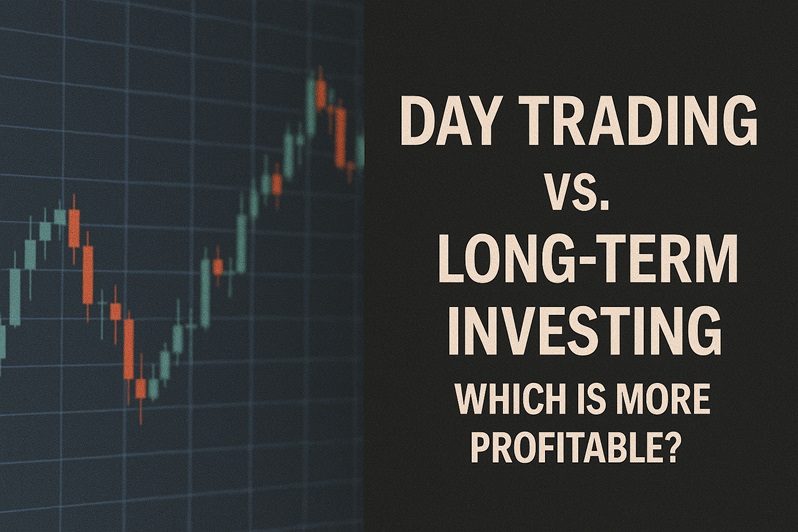
In the world of financial markets, the debate between day trading and long-term investing has persisted for decades. Both approaches offer unique advantages and risks, appealing to different types of traders and investors based on their goals, time availability, and risk tolerance. While day trading seeks short-term profits through frequent market activity, long-term investing focuses on gradual wealth accumulation over time. But which is more profitable in the end? The answer depends on strategy, discipline, and perspective.
The Nature of Day Trading
Day trading involves buying and selling financial instruments within the same trading day. Traders rely on technical analysis, price action, and market news to capture small price movements. The potential for quick gains is high, but so are the risks. Without a clear plan, tight risk management, and emotional control, traders can suffer significant losses in a short period.
Profitability in day trading requires consistency, speed, and precision. It demands constant screen time and the ability to act quickly on volatile price changes. While some traders achieve high returns, the reality is that many struggle to maintain profitability due to transaction costs, psychological stress, and frequent market noise. Success is possible, but it’s often the result of years of experience and relentless discipline.
The Power of Long-Term Investing
Long-term investing, on the other hand, takes a broader approach. Investors typically hold assets—such as stocks, ETFs, or even Forex positions—for months or years, aiming to benefit from macroeconomic growth and compounding returns. This strategy relies more on fundamental analysis, value investing, and portfolio diversification.
One of the main advantages of long-term investing is reduced exposure to short-term volatility. It allows investors to ride out temporary market fluctuations and focus on overall trends. Additionally, transaction costs are lower due to less frequent trading, and the emotional burden is significantly reduced. While returns may take longer to materialize, long-term investing has historically proven to generate consistent growth over time.
Which Strategy Aligns with Your Goals?
Determining which method is more profitable depends on personal goals and resources. Day trading can offer faster profits for those who are skilled, disciplined, and can dedicate full-time attention to the markets. However, it carries a higher failure rate and requires constant adaptation.
Long-term investing, while slower to deliver gains, offers a more stable and scalable path to wealth. It suits individuals who prefer a hands-off approach and are willing to let their investments grow over time. Many successful investors use a combination of both—applying day trading techniques for short-term opportunities and investing for retirement or wealth preservation.
In the end, it’s not just about which approach makes more money—it’s about which strategy you can execute consistently and confidently.
Conclusion
Day trading and long-term investing are two distinct paths in the financial world, each with its own strengths and challenges. Profitability depends not only on market performance but on how well the trader or investor understands their strategy, manages risk, and maintains discipline. Whether you’re drawn to the adrenaline of short-term trades or the steady pace of long-term growth, success lies in aligning your method with your mindset and financial objectives.
FAQs
Is day trading more profitable than long-term investing?
It can be for some, but it also involves higher risk and failure rates. Long-term investing often provides more consistent results.
Can you combine day trading and investing?
Yes, many professionals use both to balance short-term opportunities with long-term portfolio growth.
How much capital do I need to start day trading?
You can start with a few hundred dollars, but larger capital helps manage risk and access better trade opportunities.
Is long-term investing safer than trading?
Generally, yes. It involves less frequent decisions and is less affected by short-term volatility.
What skills are needed for day trading?
Quick decision-making, strong technical analysis, emotional control, and strict risk management.
